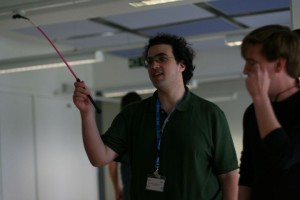
Hello fellow developers,
The summer is over

but I m happy to announce that this year s
Summer of Code at Debian has been better than ever!

This is indeed the 4th time we had the privilege of participating in the Google Summer of Code and each year has been a little different.
This year, 8 of our 10 students succeeded in our (very strict!) final evaluations, but we have reasons to believe that they will translate into more long-term developers than ever, all thank to you.

The highlight this year has been getting almost all of our students at
DebConf10. Thanks again this year to generous Travel Grants from the Google Open Source Team, we managed to fly in 7 of our students (up from 3!). You certainly saw them, presenting during DebianDay, hacking on the grass of Columbia, hacking^Wcheering our Debian Project Leader throwing the inaugural pitch of a professional baseball game or hacking^Wsun-tanning on the tr s kitsch Coney Island beach.
Before I give the keyboard to our Students, I d like to tell you that it will be the pleasure and honor of Obey Arthur Liu (yours truly, as Administrator) and Bastian Venthur (as Mentor) to represent Debian at the Summer of Code 2010 Mentors Summit on 23-24 October 2010, at the Google Headquarters in Mountain View. Like
last year, we expect many other DDs to be present under other hats. We will be having 2 days of unconference on GSoC and free software related topics. We all look forward to reporting from California on Planet and soc-coordination@l.a.d.o!
All of our students had a wonderful experience, even if they couldn t come to DebConf, that is best shared in their own voice, so without further ado, our successful projects:
Multi-Arch support in APT
by
David Kalnischkies, mentored by
Michael Vogt
apt-get install MultiArch does mostly work now as most code is already merged in squeeze, but if not complain about us at deity@l.d.o! Still, a lot left on the todo list not only in APT so let us all add MultiArch again to the Release Goals and work hard on squeezing it into wheezy.

Debbugs Bug Reporting and Manipulation API
by
David Wendt Jr., mentored by
Bastian Venthur
Hello, I m David Wendt, and I went to Debconf10 to learn more about the development side of Debian. Having used it since the 9th grade, I ve been intimately familiar with many of Debian s internals. However, I wanted to see the developers and other Debian users. At DebConf, I was able to see a variety of talks from Debian and Ubuntu developers. I also got to meet with my mentor as well as the maintainer of Debbugs.
Content-aware Config Files Upgrading
by
Krzysztof Tyszecki, mentored by
Dominique Dumont
Config::Model is now capable of manipulating files using shorter and easier to write models. Thanks to that, packagers may start experiment with creating upgrade models. Further work is needed to support more complicated config files Dominique Dumont is working on DEP-5 parser, I ll shortly start working on a cupsd config file parser.
The best thing about DebConf10 is that every person I talked with knew what I was doing. I had a mission to get some feedback on my project. Everybody liked the idea of making upgrades less cumbersome. On the other side, it was my first visit to United States, so I decided to go on a daytrip on my own (instead of staying inside the building, despite heat warnings). I had a chance to visit many interesting places like Ground Zero, the UN headquarters, Grand Central Terminal, Times square and Rockefeller Center that was a great experience.
Hurd port and de-Linux-ization of Debian-Installer
by
J r mie Koenig, mentored by
Samuel Thibault
Debconf10 was great! Among other people working on the installer, I met Aur lien Jarno from the Debian/kFreeBSD team and we worked together on a cross-platform busybox package. Besides, the talks were very interesting and I ve filled my TODO-list for the year.
For instance I learned about the Jigsaw project of OpenJDK, and how Debian would be the ideal platform to experiment with it. More generally, some people think Debian could push Java 7 forward and I d like to see this happen.
Smart Upload Server for FTP Master
by
Petr Jasek, mentored by
Joerg Jaspert
I must say that it was great time for me in NY, I ve met and talked and coded with people from ftp-master team like Torsten Werner who helped me to push the project a bit further and with some other people who were looking forward to release of the tool which I hope they will use quite soon. Everybody interested, everybody excited, really cool place and time. And I can t forget the Coney Island beach and stuff, lot of fun, lot of sun;)
Aptitude Qt
by
Piotr Galiszewski, mentored by
Sune Vuorela
Currently, development branches support full features searching, viewing extended package s informations, performing cache and packages operations. Code and GUI still require a lot of work which will be continued. Informations about further progress could be found on aptitude mailing list and repository rss channel.
Debian-Installer on Neo FreeRunner and Handheld Devices
by
Thibaut Girka, mentored by
Gaudenz Steinlin
For me, DebConf 10 started at the airport, where Sylvestre Ledru (whom I didn t know of before) was wearing a GSoC 2007 t-shirt, that is, given the circumstances, almost equivalent to say I m a hacker, I m going to DebConf 10 .
I ve spent my time at the conference attending various talks, hacking, meeting DDs and other hackers (amongst others, my co-mentor Per Andersson, Paul Wise, Julien Cristau, Christian Perrier, Cyril Brulebois, Martin Michlmayr, Colin Watson and Otavio Salvadores who I have to thank for his patience while dealing with my questions), chatting, cross-signing keys, rushing to finish eating before 7pm, getting sunburnt, sightseeing (thanks, Arthur, for the lightning-fast tour of Manhattan!), and so on.
Debian Developers and community, we count on you. See you next year!
(cross-posted to debian-devel-announce@l.d.o and soc-coordination@l.a.d.o)
 I have been packaging for Debian for a few years now. My first serious package was Wt back in 2007, but I had been backporting for Ubuntu for at least 2 years already, which means I have been doing .deb packaging for about 5 years (!).
Last week I decided it was about time stop nagging my sponsors (Vincent Bernat, Thomas Girard and Sune Vuorela) every time I wanted to update the packages I maintain (witty, ace and libmsn), and I finally started the Debian New Maintainer process.
The main reason I had not applied for Debian Maintainer yet was it requires some bureaucracy and, well, I d rather spend my time coding or packaging than doing paperwork
I have been packaging for Debian for a few years now. My first serious package was Wt back in 2007, but I had been backporting for Ubuntu for at least 2 years already, which means I have been doing .deb packaging for about 5 years (!).
Last week I decided it was about time stop nagging my sponsors (Vincent Bernat, Thomas Girard and Sune Vuorela) every time I wanted to update the packages I maintain (witty, ace and libmsn), and I finally started the Debian New Maintainer process.
The main reason I had not applied for Debian Maintainer yet was it requires some bureaucracy and, well, I d rather spend my time coding or packaging than doing paperwork 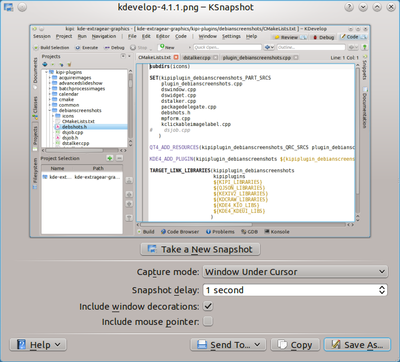
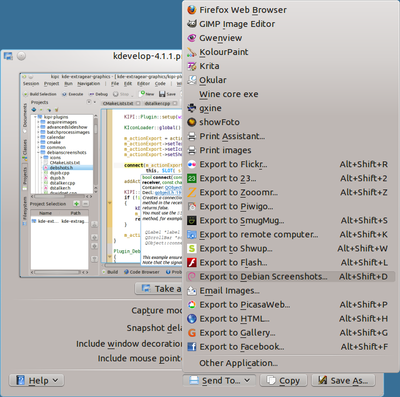
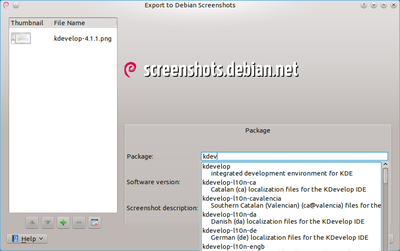
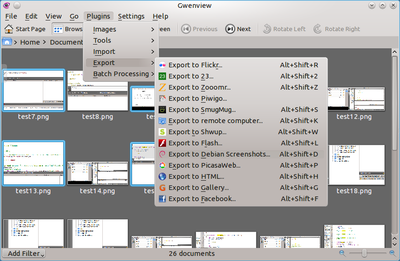
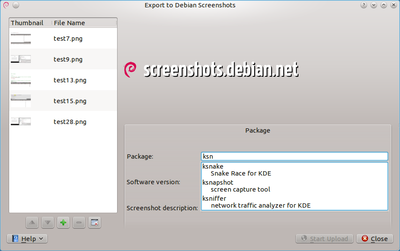
 Hello fellow developers,
The summer is over
Hello fellow developers,
The summer is over 
 3 interesting small things happened in the weekend.
Due to the hard work of mostly Florian Reinhard and George Kiagiadakis,
3 interesting small things happened in the weekend.
Due to the hard work of mostly Florian Reinhard and George Kiagiadakis, 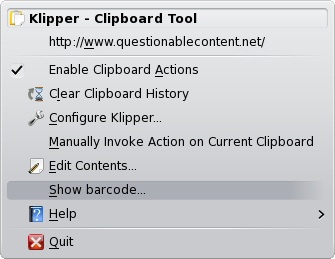
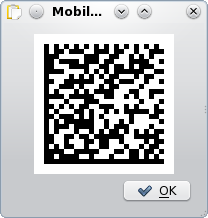
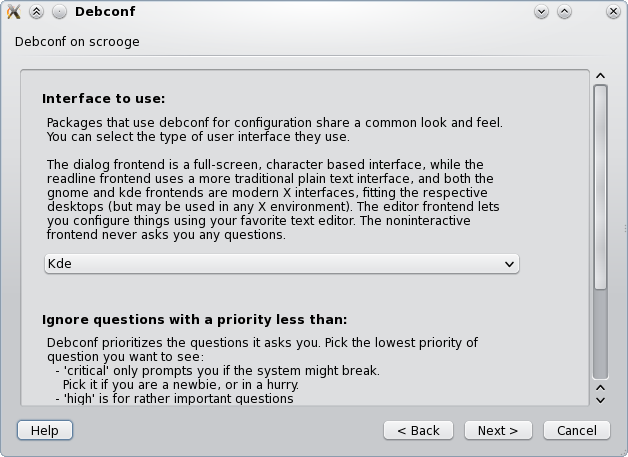
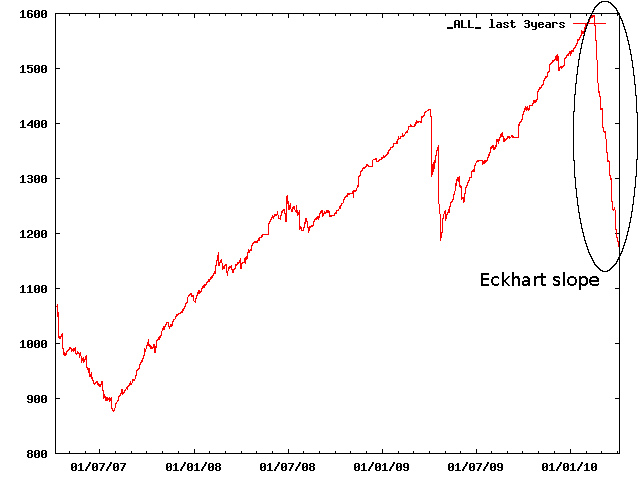
 Thanks to people who reacted to this post of mine.
As expected, when one posts such angry post, reactions come. Guess what: that was intended..:-)
So, I got more background on this
Thanks to people who reacted to this post of mine.
As expected, when one posts such angry post, reactions come. Guess what: that was intended..:-)
So, I got more background on this 